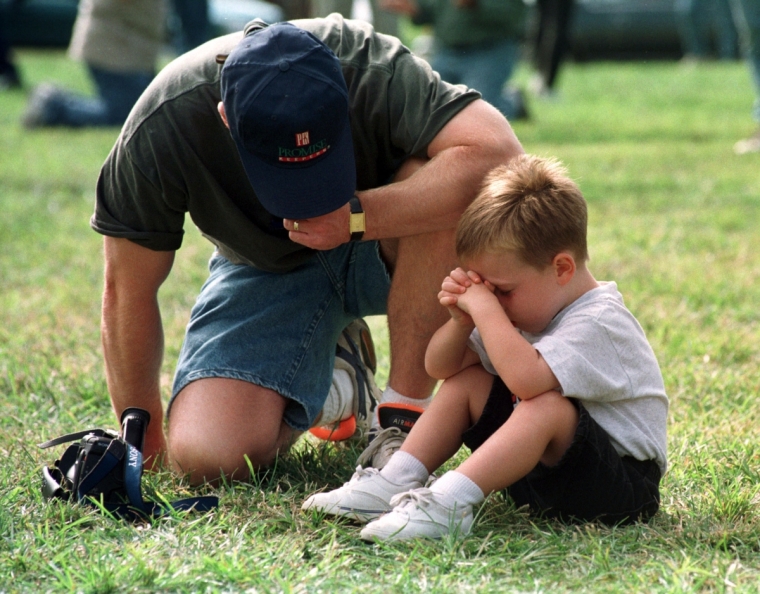Former Colorado coach says whites responsible for 'the oppression of the black man'

BOULDER, Colo. (CHRISTIAN EXAMINER) — ESPNU began airing a new installment in November called "The Gospel According to Mac" in its ongoing "30-for-30" series. It features former college football coach and founder of Promise Keepers, Bill McCartney, who boldly proclaims the Gospel throughout it.
McCartney, who was an assistant coach at Michigan (1974-81), and the head coach at Colorado (1982-94), was polarizing in the Boulder community because of his faith, while also being a visionary for the same reason.
Most white people try to excuse themselves as not having any bias. The truth of the matter is that all of us have benefited in different ways, whether we knowingly partook or not, and we need to put that right up front. We need to recognize that there's pain, and that there's torment, and there's heartache underneath all this.
The film opens with McCartney talking about his perceived spiritual gift, taken from Romans 12:8 (exhortation). And it shows him putting the gift to work while preaching to a stadium full of people.
"When you're born of the Spirit, now you submit to the authority of the Spirit," he says. "You say, 'Lord, I want a pure heart. Wash me. Empty me of myself. Fill me with you.' The Word of God is alive and powerful. Worship him. Praise him. Exalt him. Magnify him."
Part way through the presentation, McCartney talks about the pain his African-American players experienced after running into racism head on. In 1988, Boulder was a city in which less than one-percent of the population was African-American, according to the episode. An old clip of McCartney shows him offering his view on racism in a rather frank manner.
"I think the white man needs to know that he's responsible for the oppression of the black man," McCartney says. "He's held him down. He's pinned him down. He's benefited at his expense.
"Most white people try to excuse themselves as not having any bias. The truth of the matter is that all of us have benefited in different ways, whether we knowingly partook or not, and we need to put that right up front. We need to recognize that there's pain, and that there's torment, and there's heartache underneath all this."
McCartney told anybody who would listen about the plight of his African-American players.
"You just knew that you had an advocate," says former Colorado quarterback Charles Johnson in the piece. "You had someone who was looking out for you. You had one guy, who was the guy in charge, which made it most important, who would fight the battle for you."
Former Colorado wide receiver Lance Carl said McCartney's message brought the players together as a team. Other former players said the team felt like a family. That turned out to be the case, in more ways than one.
Colorado quarterback Sal Aunese fathered a son with McCartney's daughter, Kristy. McCartney didn't even know the two were dating.
"I blamed myself," McCartney says. "I should have been a better father. I should have met the needs of my daughter in a more fulfilling way. So for her to give herself outside of wedlock, was an indictment of my leadership."
McCartney said he didn't spend as much time with his wife, Lyndi, and their four children as he knows he should have. But, as was often the case after he stumbled, he did everything he could to make things right, even stepping into the role of father figure in his grandchild's life after Aunese passed away from cancer at the young age of 21.
The episode portrays a man who was passionate about his faith and his players, who stood for what he believed, and walked the Christian walk rather imperfectly. As such, it is drawing emotional and favorable responses from people in the know on Twitter.
"My family's flaws and trials will be on display tonight with the #ESPN #30for30 on my father Bill McCartney," tweeted Mike McCartney when the episode first aired. "Proud of him and my sister."
Johnson thanked ESPN in one tweet, and in another said "every emotion in me was exposed."
Greg Hansen, a sports columnist for the Arizona Daily Star, tweeted: "ESPN's 30 for 30 on Colorado Buffs 1980s football is as good as anything I remember seeing on ESPN. Scriptwriters couldn't surpass it."
Probably because it has the gospel woven throughout it.
"I'm a sinner, saved by grace," McCartney says at the end of the piece. "I'm not saying I did everything right, and I'm not saying I wouldn't do some things differently. There were times when I missed the mark, and I wish I hadn't missed the mark. But when I look back on it, God's grace prevailed."